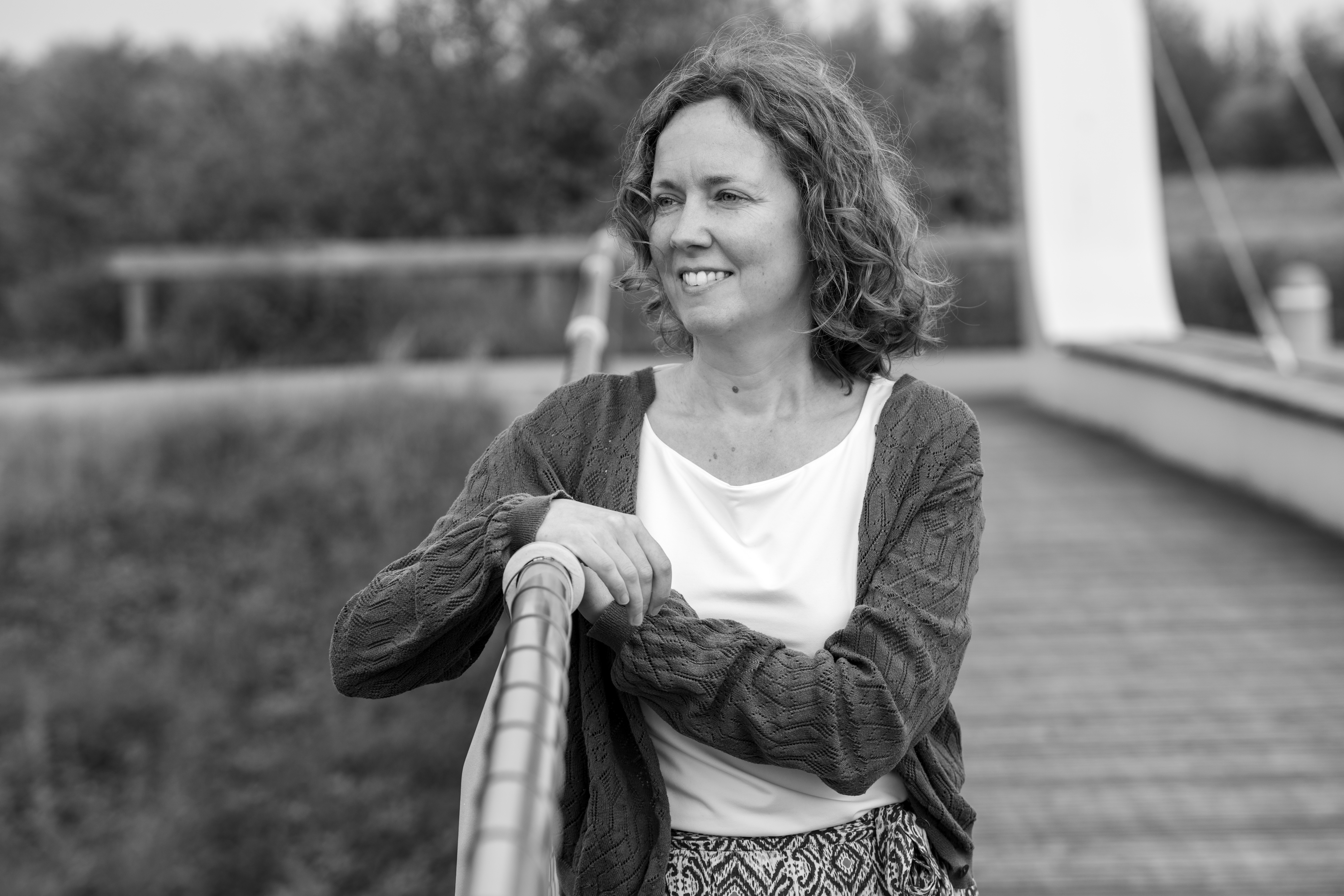Mirthe Smeets was begin maart in Schotland bij StAnza 2014, een internationaal poëziefestival. Daar sprak ze met de Zuid-Afrikaanse dichteres Gabeba Baderoon. Daarvan een verslag in Meander. In het Engels, een taal waarvan Baderoon zegt dat het voor haar een concrete, kneedbare en mysterieuze taal is. Haar poëzietaal.
StAnza 2014, said to be one of the most dynamic poetry festivals in the world, took place at the beginning of the month (5-9 March). Gabeba Baderoon, researcher and poet, (45) had the pleasure of performing in one of the charming festival locations. She read in a calm and very balanced way, which seems to reflect her personality as well. I wanted to know more about her. Here’s a summary of my conversations with Gabeba during the festival, about StAnza, languages and… her lost notebook.
 What did you think of StAnza as a festival?
What did you think of StAnza as a festival?
I loved StAnza. Firstly, the poetry was astounding, as it should be with all great gatherings of poets. I bought books which I read after the readings at night and on the plane and when I spoke with my partner on Skype. The poems lived with me! But not only the writing, but the breath and bodies and vulnerability of the poets. I can’t forget Tishani Doshi, John Burnside, Tomica, Rob Mackenzie … Then, StAnza’s other pleasure is that it is a festival integrated into its setting. The readings take place in the wonderful Byre Theatre, the Town Hall and university buildings like the perfect stone setting of the Undercroft, and we stay at inns and B&Bs all around the town. Among the people we met were South African and Botswanan and UK students, sweetness itself. On my last morning in St Andrews, I took a long walk down to the sea and saw the seagulls nestled in the cliff, listened to their cries, looked at the water, imagined studying here, and felt the impulse to write. It’s unique because it takes its identity as a Scottish festival seriously and yet with lightness. I loved beyond words to hear the sound of Scots and Welsh and Irish voices, alongside Croatian and English of various kinds.
Do you like to recite?
Yes, I do like to read my poems. It allows the body and the mind to work together, the breath to carry a meaning so interior and delicate that it needs a light yet fearless presence. When it goes well, something carries you as the reader, like running fast down a hill until you’re barely touching the ground.
You study South African literature. How does your expertise influence your poetry?
I don’t know the exact relation between the two. I hope that studying literature makes me read broadly and with alertness, and of course being a devoted reader is part of being a writer. I’ve found when I press the connection between the two too overtly, the poetry that results is heavy and unconvincing, so I allow these different kinds of writing to do different things.
You write in English, you told me that it is a choice to do that. Why do you write in English and not in Afrikaans?
I write in a language that feels concrete and malleable and mysterious to me. English is that. However, I’ve also studied Xhosa, Arabic, German and Afrikaans and so I know the difficulty and mystery that English offers to me is available in other tongues. Even to say words and to hear other languages is a physical and psychic entry into another space. After many years of misplaced distance (I thought it was not a neutral language, regarding the history, but other languages cannot be seen as innocent neither), I have rediscovered my love of Afrikaans and I hope to write poetry one day in it and in Arabic.
Which poets do you admire?
I admire immensely two South African poets, Rustum Kozain and Tatamkhulu Afrika. Both achieved what to me are incalculable accomplishments – a superlative lyrical gift, tenderness, and an ability to address the political questions of South Africa with unswerving honesty and originality. I advise all poetry lovers to read the fantastic poem of Kozain: "Kingdom of Rain", I love its tenderness and anger.
When did you start writing; was it hard to take your talent seriously; to show your work to others?
I took an evening class in poetry in August 1999 and this changed my life. I was already a student of literature but this was my first class in creative writing. It was not hard to show my work to others because there was no fear in poetry for me. I was a beginner, a student and I was among others who were there to learn. From that openness to learning and to making mistakes has come everything that poetry offers.
* Baderoon, G. (2014). Regarding Muslims: from slavery to post-apartheid. (A book of critical essays on images of Islam and slavery in South Africa.) Wits University Press, forthcoming June 2014.
* Baderoon, G. (2008). The Silence Before Speaking. (A selected collection of my poems translated into Swedish). 112 pages pp. Tranan Press, Stockholm.
* Baderoon, G. (2006). A hundred silences. 1-73 pp. Kwela Books/Snailpress, Cape Town.
* Baderoon, G. (2005). The Dream in the Next Body. 1-63 pp. Kwela Books/Snailpress, Cape Town.
* Baderoon, G. (2005). The Museum of Ordinary Life. 34 pp. Daimler. Stuttgart.
What are your goals for the future?
I am working on a new collection called "Axis and Revolution". I give it a name to give it weight because it is always a demanding thing to write poetry, to trust the work. If I were to reflect on the nature of the poems, I would say they are looser, more narrative works, pieces that experiment with form and voice more. Perhaps that is all I should say before they are finished.
You told me that your notebook is important to you. You write in it at airports, everywhere. But here at StAnza… you lost it!
It is a great loss to lose the thoughts of many years. And yet loss has been a motor of writing for me in the past. The poem "Give" was one I had to rewrite after losing the first version and some of its loss is part of the poem now. "The Pen", the last poem in A hundred silences, deals with loss. I would infinitely prefer not to experience loss but since it’s inevitable, perhaps I am learning to negotiate with it better.
She sighs and smiles.
But the good thing is: StAnza has definitely inspired me. I wrote on the plane and back at home, and most of all, the words of other writers are in my mind and body. That is the best and deepest inspiration.

